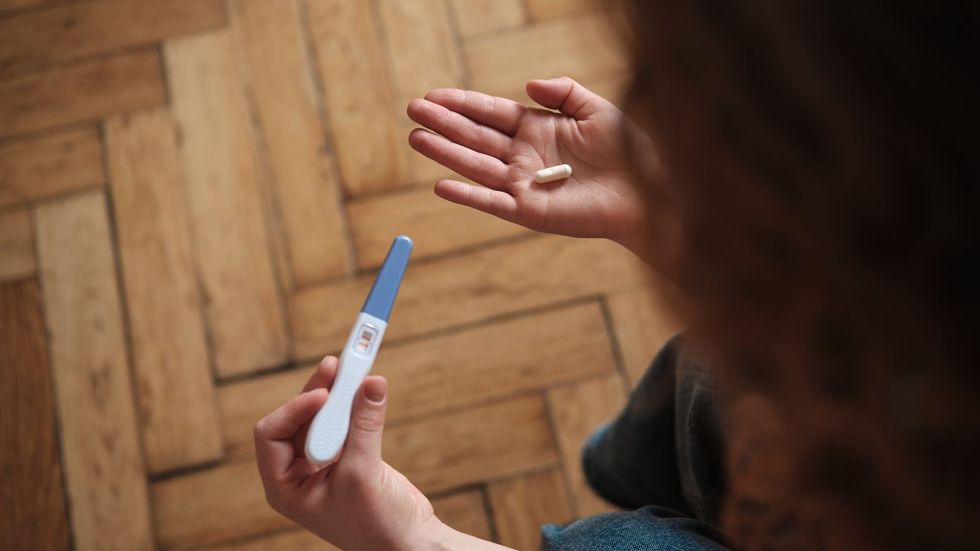Since 2007, the number of young girls age 17 and under seeking emergency terminations has steadily decreased
Additional reporting by Zoe Hardy
Don't Miss
Most Read
Trending on GB News
Fake news on social media has been blamed for soaring abortion rates among teenagers, experts have warned.
Abortions among girls aged 15-17 rose by a record 12 per cent in just one year, following an huge drop in the number of girls using contraception, new research shows.
Experts blame the shock rise - from 7,000 abortions in 2021, to nearly 7,800 in 2022 - on a social media trend in which influencers post misleading videos claiming contraception will cause serious health complications such as infertility, alopecia and breast cancer.
Since 2007, the number of young girls age 17 and under seeking emergency terminations has steadily decreased due, at least in part, to better access to contraception, with emergency hormonal contraception being rolled out across many pharmacies free of charge.

GETTY
The latest figures, released this year by the Department of Health & Social Care, however bucked this trend.
While the reasons behind record high abortion figures among girls are not entirely clear healthcare professionals have raised serious concerns about the spread of misinformation on social media. These include videos featuring young women speaking out about the pill and long-term contraception - the hormonal implant.
In some cases, women posting on these platforms claim the implant causes cancer.
In other videos, it has been claimed the pill can make young girls and women infertile.
One video, that had almost 18,000 likes and over 136,000 views, read: “Girlies.. the implant literally gave me thyroid cancer so please be careful.”
Sexual Health and Reproductive Services have also seen an alarming drop in the number of girls under 18 who regularly use an effective form of contraception.
Experts believe this does not mean less young girls are having sex.
Dr Janet Barter, president of The Faculty of Sexual and Reproductive Health, the UK’s leading healthcare advisory group, said: “It’s a doubled-edged sword. On the one hand, it is good that young girls are thinking about what the right contraception is for them before they make a decision.
“But, if you look at social media, you see extreme things that are clearly untrue, like the pill will make you infertile. We know that’s not the case.”
She added: “We’ve really got to do some more work to talk about hormones in a more sensible way.
“What these girls deserve is a proper conversation looking at the risks and benefits of all the different methods, and then being able to choose.”
Social media platforms all insist they do all they can to remove misinformation particularly where it is likely to directly contribute to the risk of harm.








